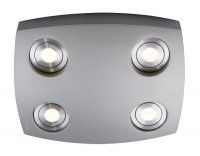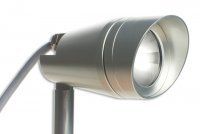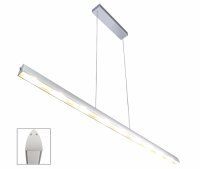LED Lighting
Want to reduce your lighting energy costs by up to 80%?
What is an LED?
An LED (Light Emitting Diode) is a device that converts electrical energy directly into light. There are no moving parts, no gas and no filaments to heat up.
When a current is passed across an LED it causes the electrons to move. It is this movement that creates and releases energy – this energy is called a Photon and is visible to the human eye, thus we have a Light Emitting Diode, or LED!
When a current is passed across an LED it causes the electrons to move. It is this movement that creates and releases energy – this energy is called a Photon and is visible to the human eye, thus we have a Light Emitting Diode, or LED!

Where are LEDs being used?
LEDs look great, so they are commonly used in homes and businesses for aesthetic effect. They are also commonly found in gardens and outdoor lighting applications. LEDs are also used in specialty lighting applications, including architectural highlighting. And they are even used in civil and industrial settings – e.g. traffic lights, and exit signs.

What are the advantages of using LED lights?
LEDs bring many advantages, the main ones being: high efficiency and durability; longer life over other lamps; and greatly reduced need for maintenance. All this this translates into energy savings, maintenance savings and an overall reduction in the cost of ownership over the lifetime of your LEDs.
Are there environmental benefits?
Yes. LED fixtures have an environmental advantage, in that they contain no mercury, they last longer and produce less waste – plus they are made from fully recyclable materials.
A single kilowatt-hour of electricity will generate 610grams of CO2 emissions.Assuming the average light bulb is on for 10 hours a day, a single 40-watt incandescent bulb will generate 89 kg of CO2 every year. The 8.5-watt LED equivalent will only be responsible for 19kg
of CO2 over the same time span. A building’s carbon footprint from lighting can be reduced by 79% by exchanging all incandescent bulbs
for new LEDs!
A single kilowatt-hour of electricity will generate 610grams of CO2 emissions.Assuming the average light bulb is on for 10 hours a day, a single 40-watt incandescent bulb will generate 89 kg of CO2 every year. The 8.5-watt LED equivalent will only be responsible for 19kg
of CO2 over the same time span. A building’s carbon footprint from lighting can be reduced by 79% by exchanging all incandescent bulbs
for new LEDs!

Do I have to replace LED diodes?
An LED does not burn out like a standard lamp, so individual diodes do not need to be replaced. Instead, the diodes gradually produce lower output levels over a very long period of time. If one LED fails, it does not produce a complete fixture outage.

